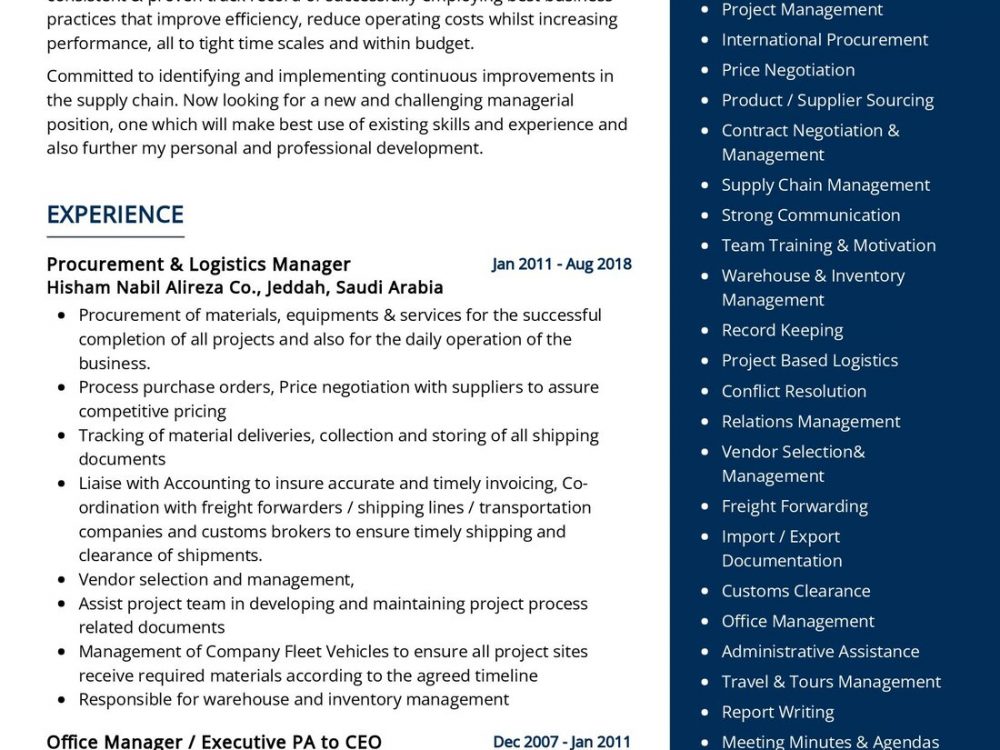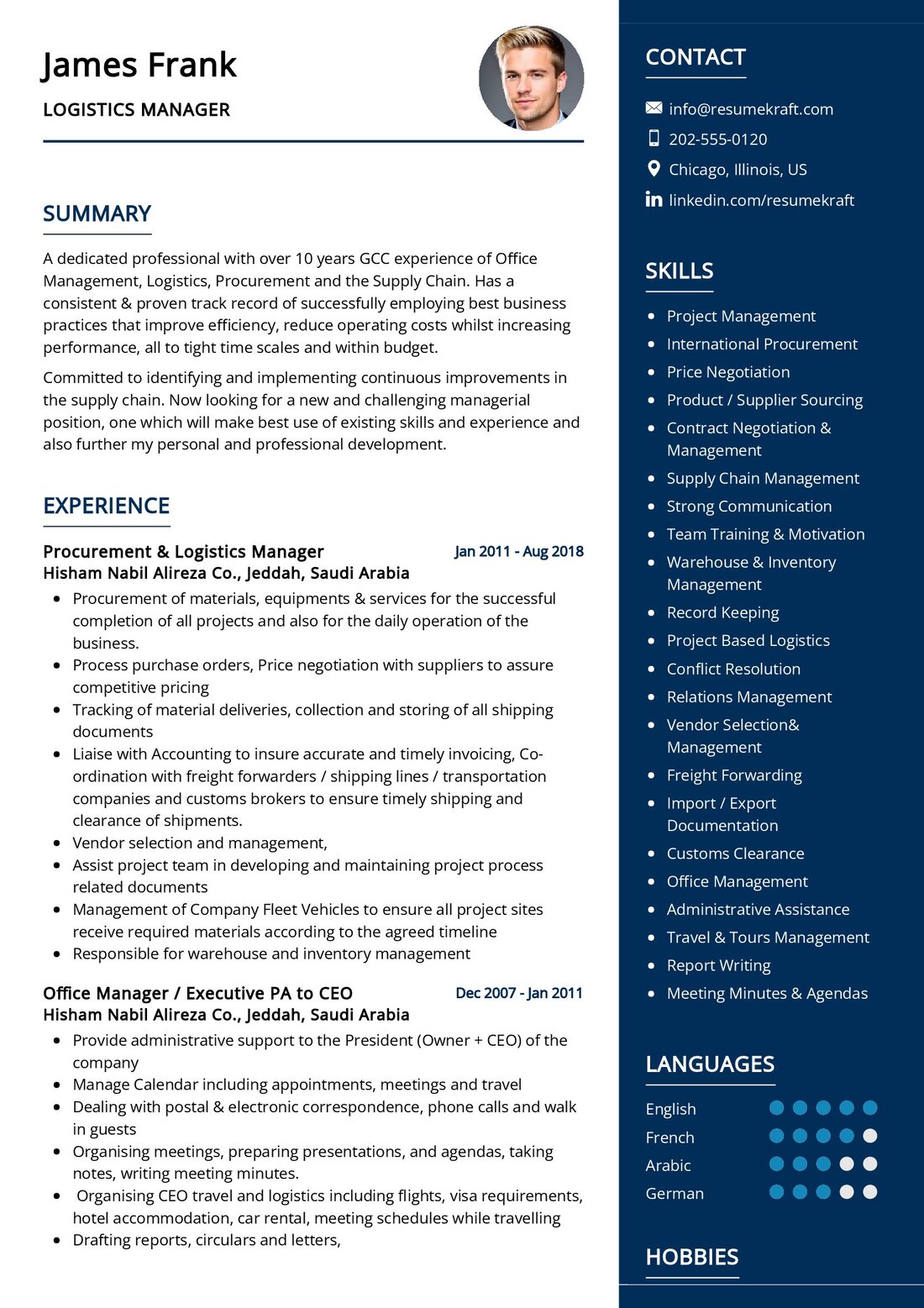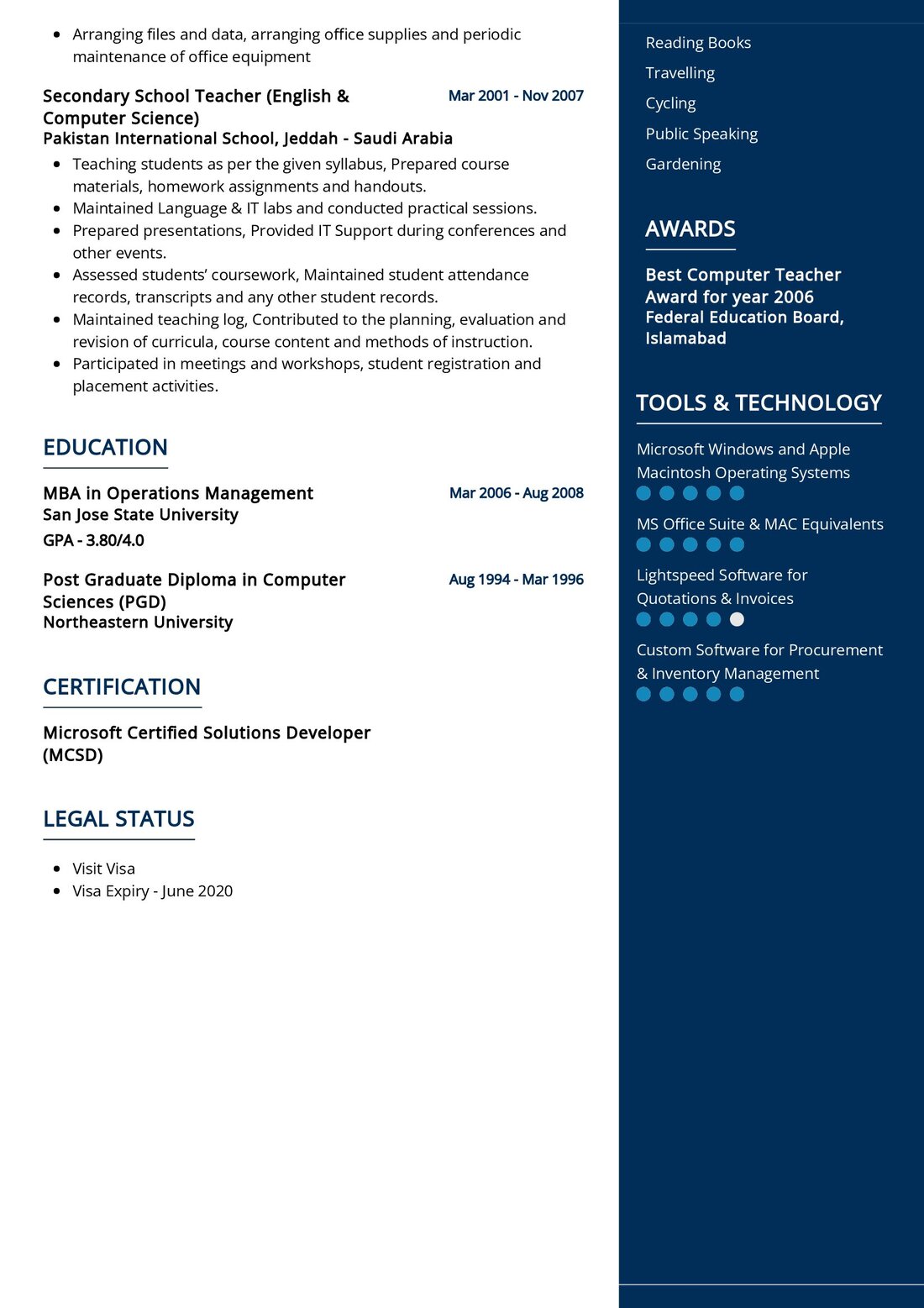What is the Role of a Logistics Manager?
At the heart of every thriving business is a well-oiled logistics system, and steering this crucial operation is the Logistics Manager. This role is the backbone of ensuring goods are in the right place at the right time, a task that requires a blend of strategic planning, coordination, and problem-solving.
A Logistics Manager oversees the movement, distribution, and storage of materials in an organization. They manage the entire order cycle, enhancing business development and ensuring sustainability and customer satisfaction. From coordinating drivers and vehicles to implementing operational policies, a Logistics Manager plays a vital role in any business’s success.
What are the Logistics Manager Job Requirements?
Embarking on a career as a Logistics Manager requires a mix of education, experience, and a dash of innate skills. Here’s a look at the basic requirements:
- A bachelor’s degree in business, supply chain management, or a related field.
- Proven experience in logistics or a related area.
- Strong analytical, problem-solving, and organizational skills.
- Ability to work independently and handle multiple projects.
- Understanding of the industry’s legal regulations and ISO requirements.
Additional certifications in logistics and supply chain management can give you an edge in the competitive job market.
What are the Responsibilities of a Logistics Manager?
A Logistics Manager wears many hats throughout the day, juggling a variety of responsibilities to ensure smooth operations. Here’s a glimpse into their daily duties:
- Overseeing and managing the supply chain and logistics operations, which includes transportation, warehousing, and inventory.
- Implementing operational policies and procedures to improve efficiency.
- Managing logistics, warehouse, transportation, and customer services.
- Directing, optimizing and coordinating the full order cycle.
- Liaising and negotiating with suppliers, manufacturers, retailers, and consumers.
Each day brings new challenges and opportunities for problem-solving and improvement, making the role of a Logistics Manager dynamic and rewarding.
Logistics Manager Resume Writing Tips
Creating a standout resume is your first step towards landing that dream Logistics Manager role. Here are some tips to help you along the way:
- Highlight your experience in logistics and any specific achievements or projects.
- Detail your knowledge of logistics software and any relevant certifications.
- Showcase your ability to lead and manage a team effectively.
- Include any initiatives taken to reduce costs and improve efficiency.
- Personalize your resume to align with the specific requirements of the job you’re applying for.
Remember, your resume is your personal marketing tool, so make every word count!
Logistics Manager Resume Summary Examples
Your resume summary is like the book cover for your career story. It should grab attention and entice the reader to learn more about your journey. Here are some examples to get you started:
- “Detail-oriented Logistics Manager with 5+ years of experience in supply chain management and proven ability to cut costs and improve efficiency.”
- “Versatile Logistics Manager skilled in negotiations and logistics planning, with a focus on building lasting business relationships.”
- “Results-driven Logistics Manager with a decade of experience in the industry, specializing in improving operational efficiency.”
These summaries give a snapshot of your experience, skills, and what you bring to the table.
Create a Strong Experience Section for Your Logistics Manager Resume
The experience section is where you get to showcase your journey and achievements. Here’s how you can structure it:
- “Reduced transportation costs by 15% by implementing a new freight management system.”
- “Led a team of 20 to oversee the day-to-day operations of a busy logistics firm.”
- “Developed strong relationships with suppliers, leading to improved reliability and reduced costs.”
Each bullet point should reflect your achievements and the impact you had in each role.
Sample Education Section for Your Logistics Manager Resume
Your education section reflects your academic foundation. Here’s an example of how to list your qualifications:
- Bachelor of Science in Supply Chain Management, XYZ University, 2010.
- Certified in Logistics, Transportation and Distribution (CLTD), APICS, 2015.
Listing relevant certifications along with your degree adds value to your resume.
Logistics Manager Skills for Your Resume
Skills are the building blocks of your role as a Logistics Manager. Here are some soft and hard skills to include:
Soft Skills:
- Leadership
- Communication
- Problem-solving
- Time management
- Adaptability
Hard Skills:
- Supply chain management
- Transportation and warehouse management
- Inventory control
- Procurement
- Data analysis
These skills are your toolkit, enabling you to perform your role effectively.
Most Common Mistakes to Avoid When Writing a Logistics Manager Resume
Avoiding common mistakes can be the difference between your resume landing in the ‘yes’ or the ‘no’ pile. Here are some pitfalls to watch out for:
- Using a generic resume for every job application.
- Listing responsibilities without showcasing achievements.
- Ignoring the importance of a well-crafted cover letter.
- Using too much industry jargon.
- Not proofreading for typos and grammatical errors.
Avoiding these mistakes can help your resume shine in a sea of applications.
Key Takeaways for Your Logistics Manager Resume
As we wrap up, let’s revisit the essential elements to include in your Logistics Manager resume:
- Emphasize your experience and achievements in logistics.
- Highlight your leadership skills and ability to improve efficiency and cut costs.
- Customize your resume for the specific role you’re applying for.
- Include relevant education and certifications.
Finally, feel free to utilize resources like AI Resume Builder, Resume Design, Resume Samples, Resume Examples, Resume Skills, Resume Help, Resume Synonyms, and Job Responsibilities to create a standout application and prepare for the Logistics Manager job interview.
With these tips and insights, you are well on your way to crafting a resume that reflects your unique skills, experiences, and aspirations. Best of luck on your job-seeking journey!



